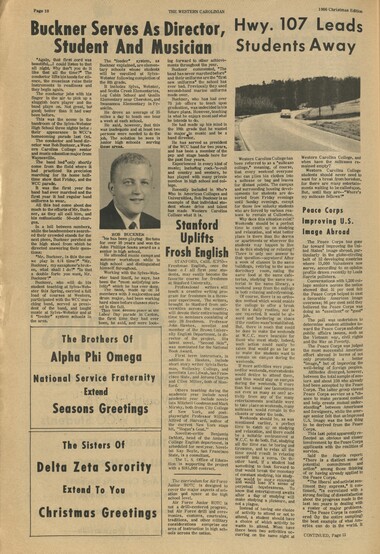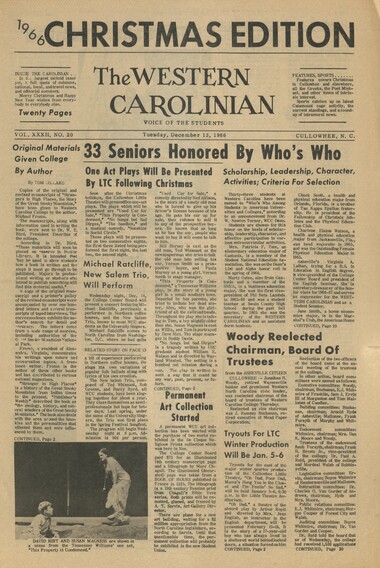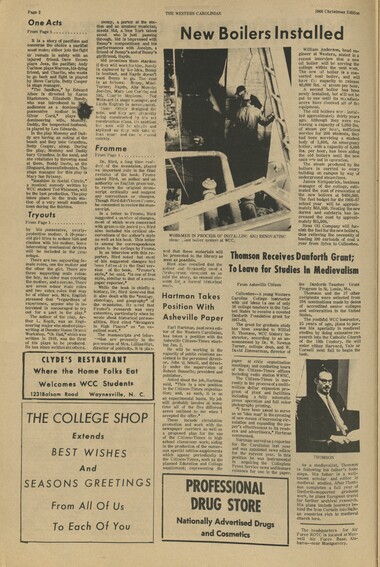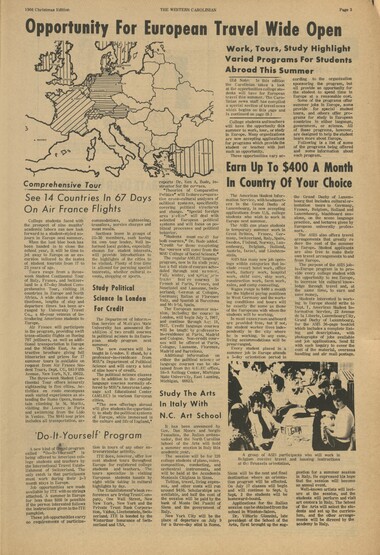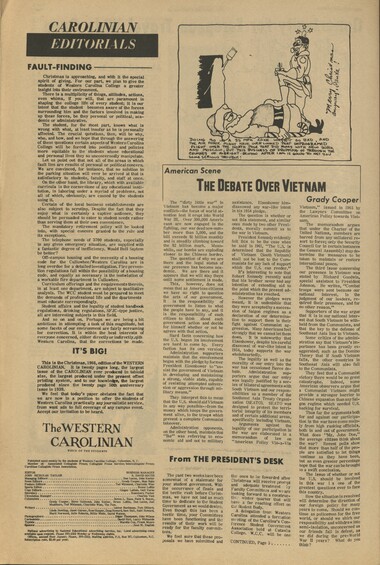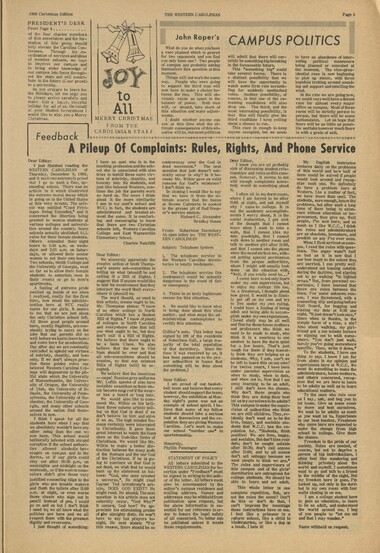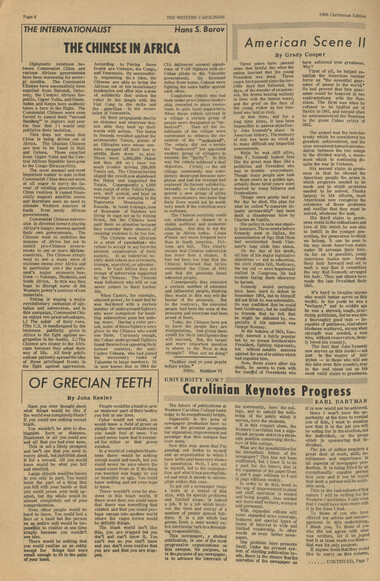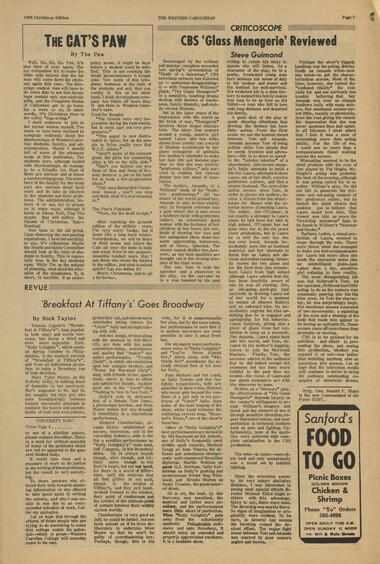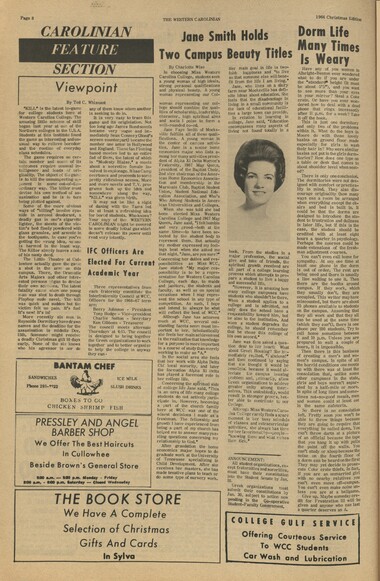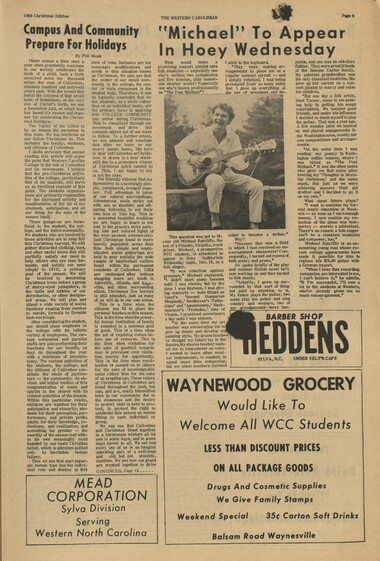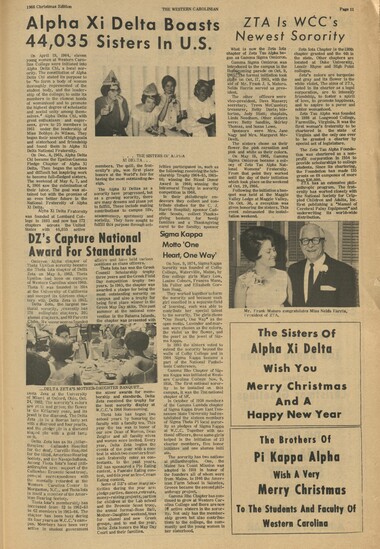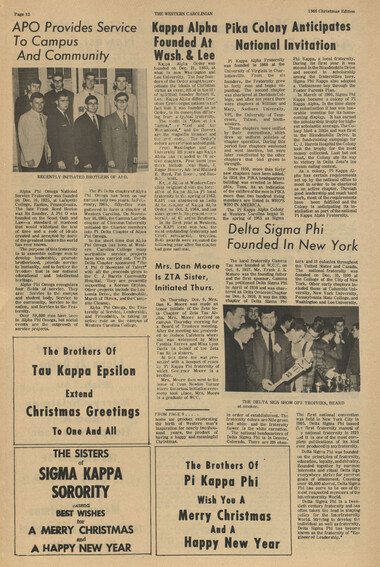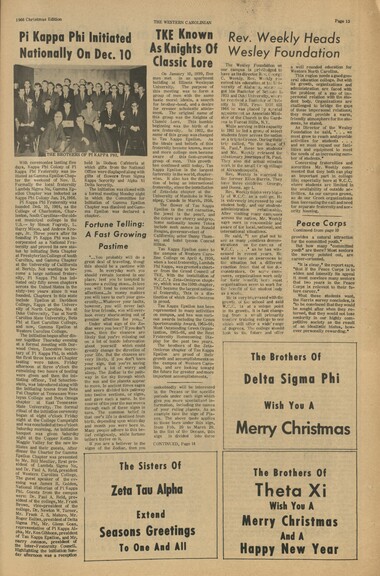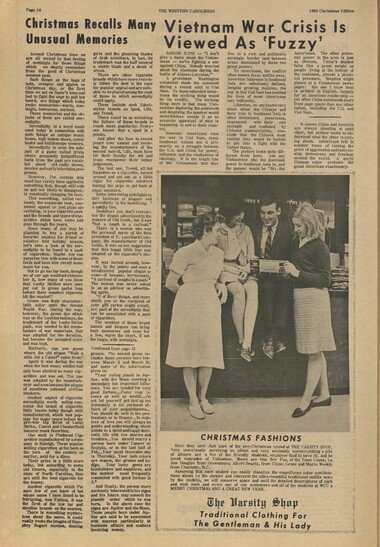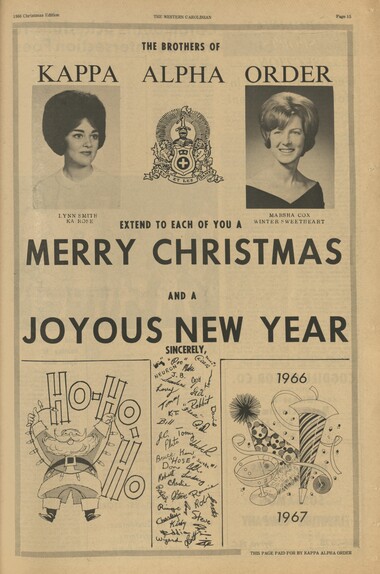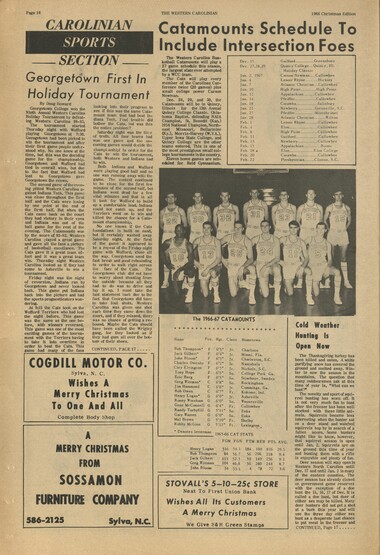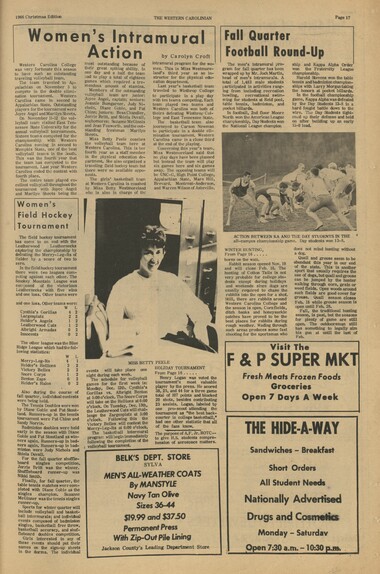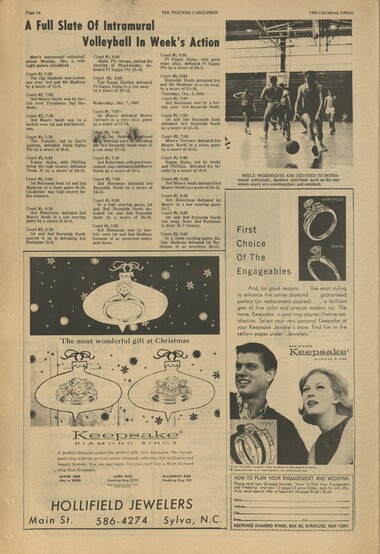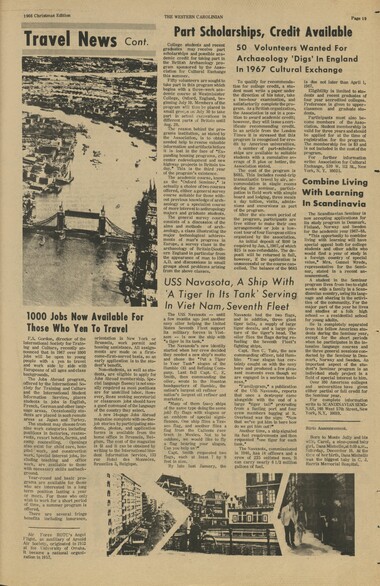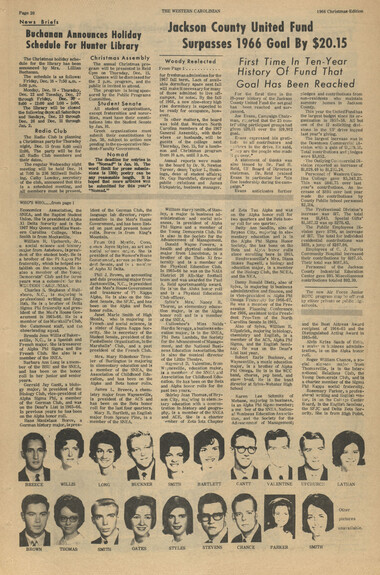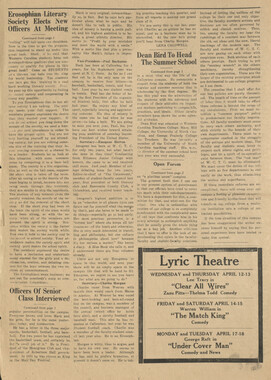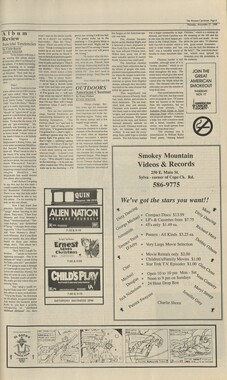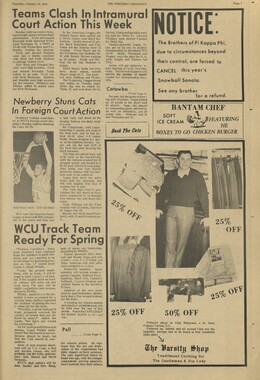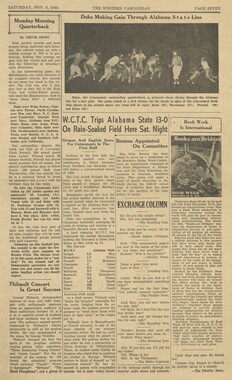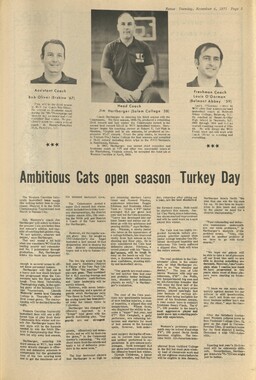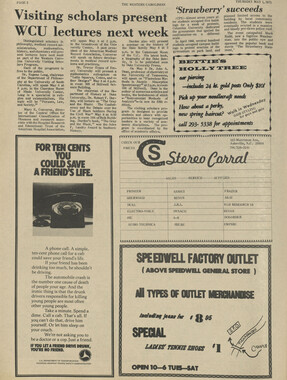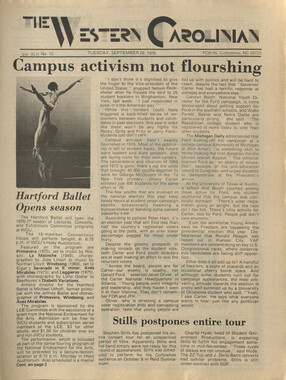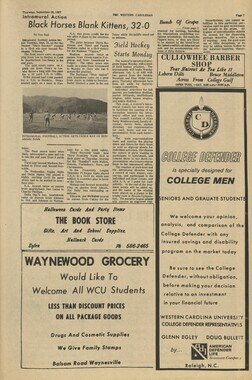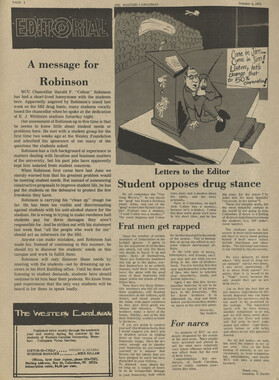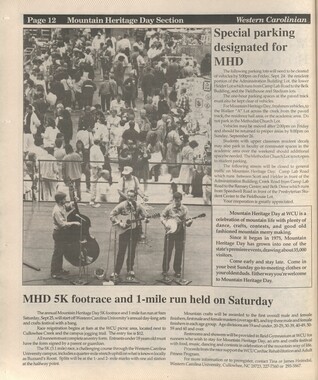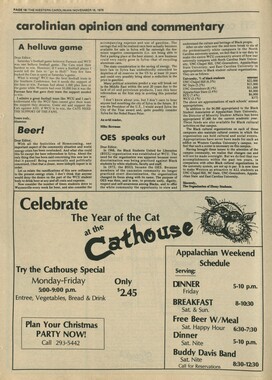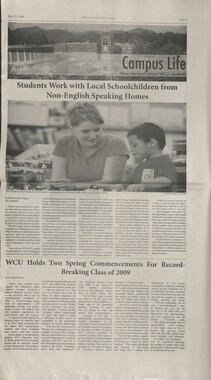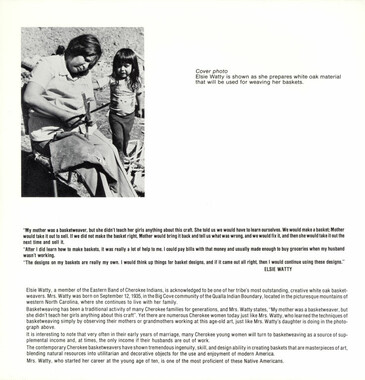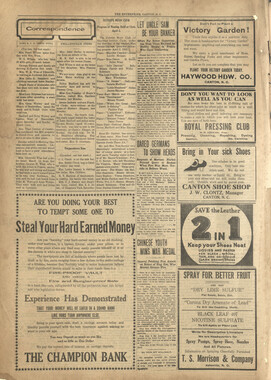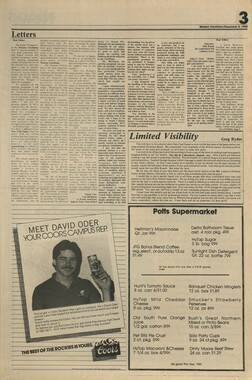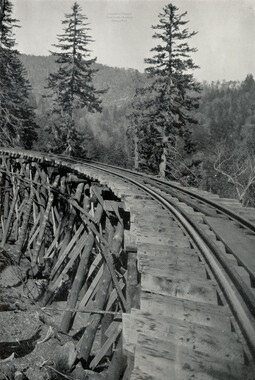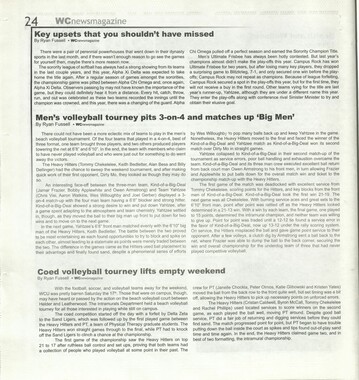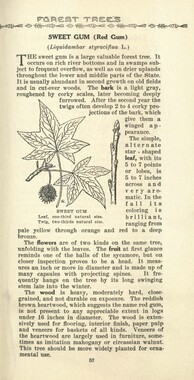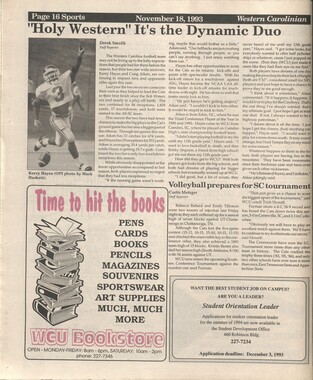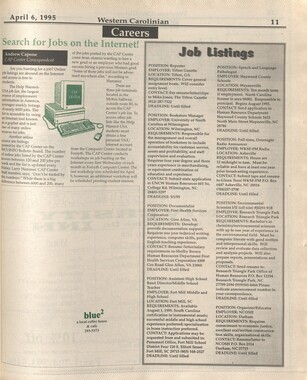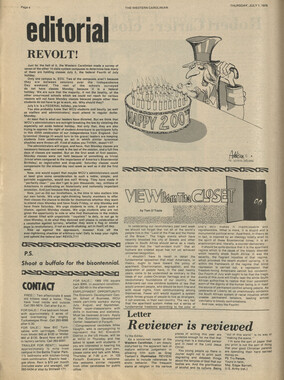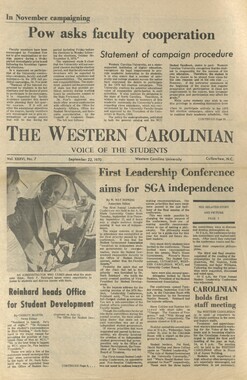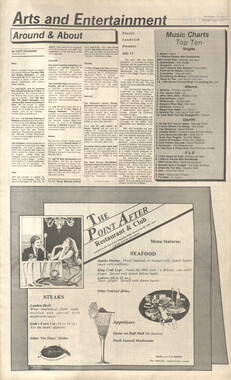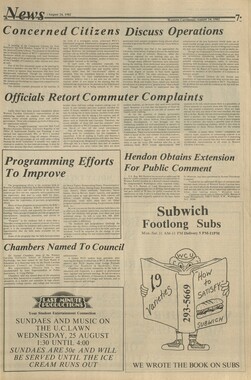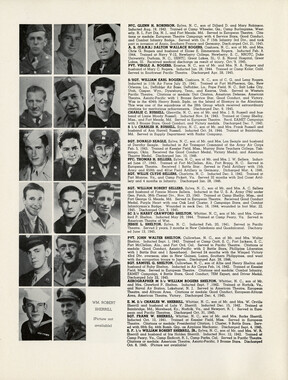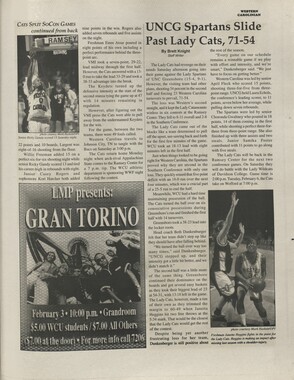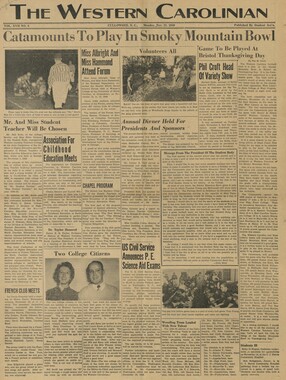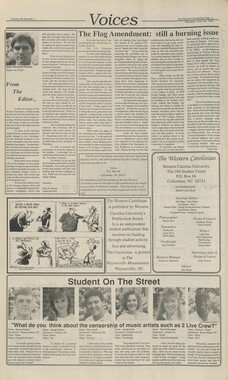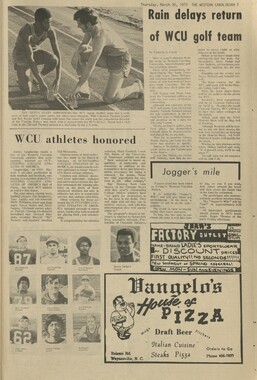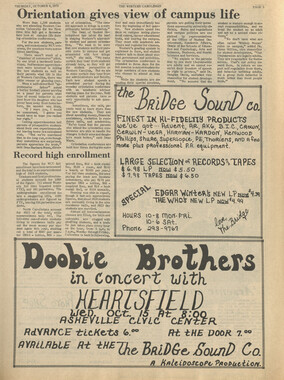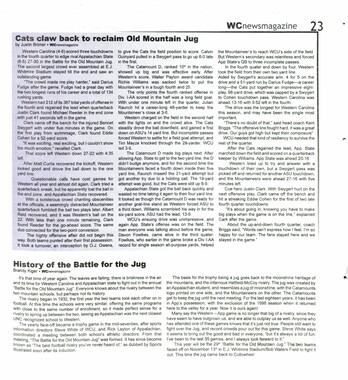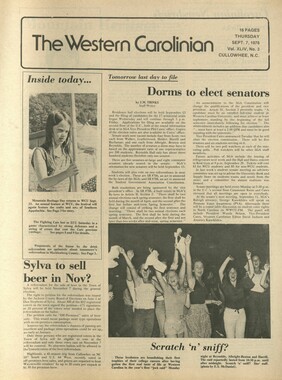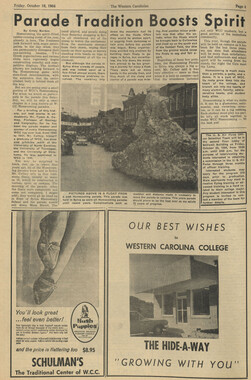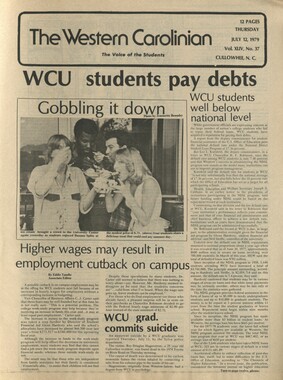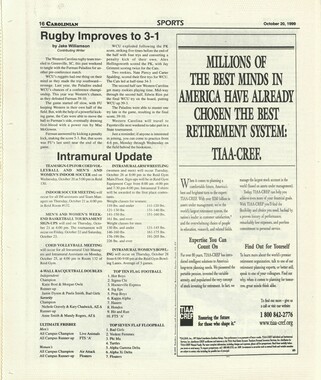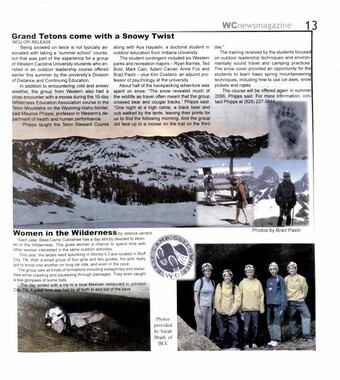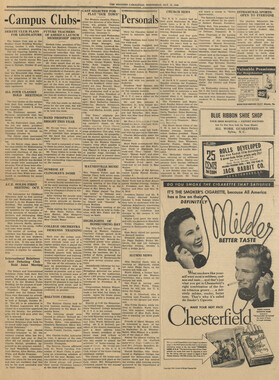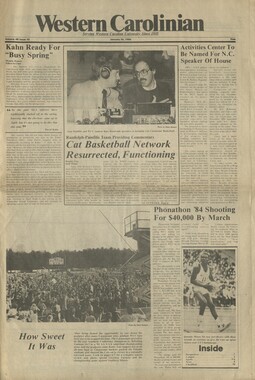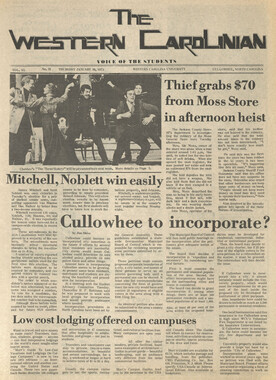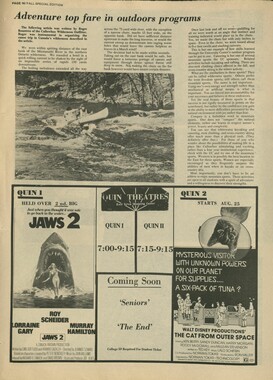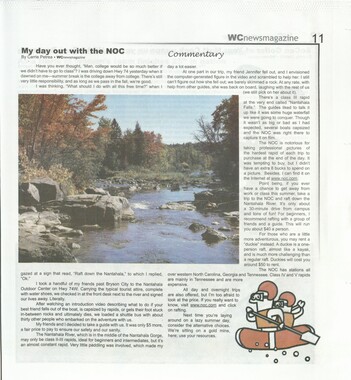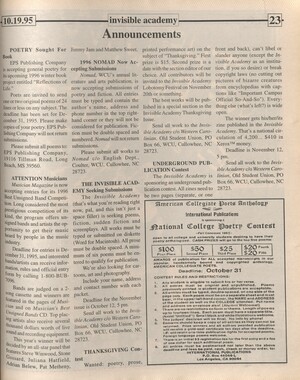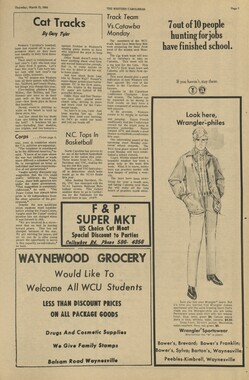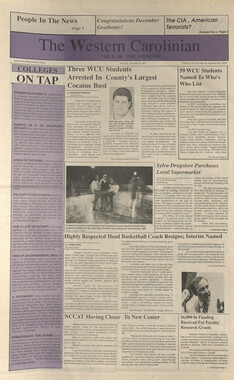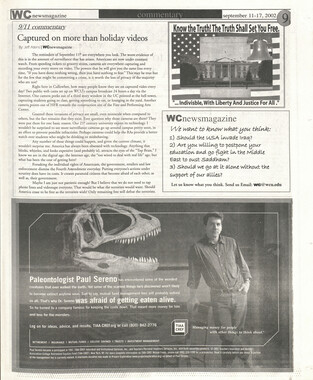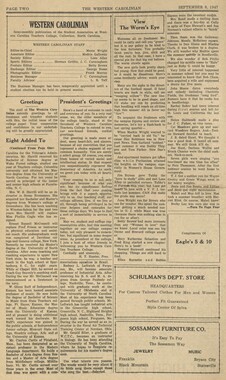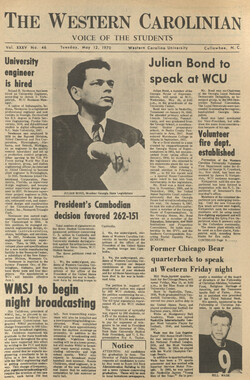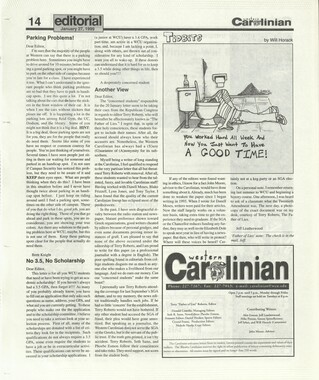Western Carolina University (21)
View all
- Canton Champion Fibre Company (2308)
- Cherokee Traditions (291)
- Civil War in Southern Appalachia (165)
- Craft Revival (1942)
- George Masa Collection (137)
- Great Smoky Mountains - A Park for America (3080)
- Highlights from Western Carolina University (422)
- Horace Kephart (973)
- Journeys Through Jackson (159)
- LGBTQIA+ Archive of Jackson County (89)
- Oral Histories of Western North Carolina (318)
- Picturing Appalachia (6617)
- Stories of Mountain Folk (413)
- Travel Western North Carolina (153)
- Western Carolina University Fine Art Museum Vitreograph Collection (129)
- Western Carolina University Herbarium (92)
- Western Carolina University: Making Memories (738)
- Western Carolina University Publications (2491)
- Western Carolina University Restricted Electronic Theses and Dissertations (146)
- Western North Carolina Regional Maps (71)
- World War II in Southern Appalachia (131)
University of North Carolina Asheville (6)
View all
- Allanstand Cottage Industries (62)
- Appalachian National Park Association (53)
- Bennett, Kelly, 1890-1974 (1463)
- Berry, Walter (76)
- Brasstown Carvers (40)
- Carver, George Washington, 1864?-1943 (26)
- Cathey, Joseph, 1803-1874 (1)
- Champion Fibre Company (233)
- Champion Paper and Fibre Company (297)
- Cherokee Indian Fair Association (16)
- Cherokee Language Program (22)
- Crowe, Amanda (40)
- Edmonston, Thomas Benton, 1842-1907 (7)
- Ensley, A. L. (Abraham Lincoln), 1865-1948 (275)
- Fromer, Irving Rhodes, 1913-1994 (70)
- George Butz (BFS 1907) (46)
- Goodrich, Frances Louisa (120)
- Grant, George Alexander, 1891-1964 (96)
- Heard, Marian Gladys (60)
- Kephart, Calvin, 1883-1969 (15)
- Kephart, Horace, 1862-1931 (313)
- Kephart, Laura, 1862-1954 (67)
- Laney, Gideon Thomas, 1889-1976 (439)
- Masa, George, 1881-1933 (61)
- McElhinney, William Julian, 1896-1953 (44)
- Niggli, Josephina, 1910-1983 (10)
- North Carolina Park Commission (105)
- Osborne, Kezia Stradley (9)
- Owens, Samuel Robert, 1918-1995 (11)
- Penland Weavers and Potters (36)
- Roberts, Vivienne (15)
- Roth, Albert, 1890-1974 (142)
- Schenck, Carl Alwin, 1868-1955 (1)
- Sherrill's Photography Studio (2565)
- Southern Highland Handicraft Guild (127)
- Southern Highlanders, Inc. (71)
- Stalcup, Jesse Bryson (46)
- Stearns, I. K. (213)
- Thompson, James Edward, 1880-1976 (226)
- United States. Indian Arts and Crafts Board (130)
- USFS (683)
- Vance, Zebulon Baird, 1830-1894 (1)
- Weaver, Zebulon, 1872-1948 (58)
- Western Carolina College (230)
- Western Carolina Teachers College (282)
- Western Carolina University (2008)
- Western Carolina University. Mountain Heritage Center (18)
- Whitman, Walt, 1819-1892 (10)
- Wilburn, Hiram Coleman, 1880-1967 (73)
- Williams, Isadora (3)
- Cain, Doreyl Ammons (0)
- Crittenden, Lorraine (0)
- Rhodes, Judy (0)
- Smith, Edward Clark (0)
- Appalachian Region, Southern (3032)
- Asheville (N.C.) (1945)
- Avery County (N.C.) (26)
- Blount County (Tenn.) (195)
- Buncombe County (N.C.) (1680)
- Cherokee County (N.C.) (283)
- Clay County (N.C.) (556)
- Graham County (N.C.) (238)
- Great Smoky Mountains National Park (N.C. and Tenn.) (525)
- Haywood County (N.C.) (3573)
- Henderson County (N.C.) (70)
- Jackson County (N.C.) (4925)
- Knox County (Tenn.) (35)
- Knoxville (Tenn.) (13)
- Lake Santeetlah (N.C.) (10)
- Macon County (N.C.) (421)
- Madison County (N.C.) (216)
- McDowell County (N.C.) (39)
- Mitchell County (N.C.) (135)
- Polk County (N.C.) (35)
- Qualla Boundary (982)
- Rutherford County (N.C.) (78)
- Swain County (N.C.) (2185)
- Transylvania County (N.C.) (270)
- Watauga County (N.C.) (12)
- Waynesville (N.C.) (86)
- Yancey County (N.C.) (72)
- Aerial Photographs (3)
- Aerial Views (60)
- Albums (books) (4)
- Articles (1)
- Artifacts (object Genre) (228)
- Bibliographies (1)
- Biography (general Genre) (2)
- Cards (information Artifacts) (38)
- Clippings (information Artifacts) (192)
- Copybooks (instructional Materials) (3)
- Crafts (art Genres) (622)
- Depictions (visual Works) (21)
- Design Drawings (1)
- Digital Moving Image Formats (2)
- Drawings (visual Works) (185)
- Envelopes (101)
- Exhibitions (events) (1)
- Facsimiles (reproductions) (1)
- Fiction (general Genre) (4)
- Financial Records (12)
- Fliers (printed Matter) (67)
- Glass Plate Negatives (381)
- Guidebooks (2)
- Internegatives (10)
- Interviews (823)
- Land Surveys (102)
- Letters (correspondence) (1045)
- Manuscripts (documents) (618)
- Maps (documents) (177)
- Memorandums (25)
- Minutes (administrative Records) (59)
- Negatives (photographs) (6090)
- Newsletters (1290)
- Newspapers (2)
- Notebooks (8)
- Occupation Currency (1)
- Paintings (visual Works) (1)
- Pen And Ink Drawings (1)
- Periodicals (194)
- Personal Narratives (10)
- Photographs (12977)
- Plans (maps) (1)
- Poetry (6)
- Portraits (4568)
- Postcards (329)
- Programs (documents) (181)
- Publications (documents) (2444)
- Questionnaires (65)
- Relief Prints (26)
- Sayings (literary Genre) (1)
- Scrapbooks (282)
- Sheet Music (2)
- Slides (photographs) (402)
- Songs (musical Compositions) (2)
- Sound Recordings (802)
- Specimens (92)
- Speeches (documents) (18)
- Tintypes (photographs) (8)
- Transcripts (329)
- Text Messages (0)
- A.L. Ensley Collection (275)
- Appalachian Industrial School Records (7)
- Appalachian National Park Association Records (336)
- Axley-Meroney Collection (2)
- Bayard Wootten Photograph Collection (20)
- Bethel Rural Community Organization Collection (7)
- Blumer Collection (5)
- C.W. Slagle Collection (20)
- Canton Area Historical Museum (2110)
- Carlos C. Campbell Collection (462)
- Cataloochee History Project (64)
- Cherokee Studies Collection (4)
- Daisy Dame Photograph Album (5)
- Daniel Boone VI Collection (1)
- Doris Ulmann Photograph Collection (112)
- Elizabeth H. Lasley Collection (1)
- Elizabeth Woolworth Szold Fleharty Collection (4)
- Frank Fry Collection (95)
- George Masa Collection (173)
- Gideon Laney Collection (452)
- Hazel Scarborough Collection (2)
- Hiram C. Wilburn Papers (28)
- Historic Photographs Collection (236)
- Horace Kephart Collection (861)
- Humbard Collection (33)
- Hunter and Weaver Families Collection (1)
- I. D. Blumenthal Collection (4)
- Isadora Williams Collection (4)
- Jesse Bryson Stalcup Collection (47)
- Jim Thompson Collection (224)
- John B. Battle Collection (7)
- John C. Campbell Folk School Records (80)
- John Parris Collection (6)
- Judaculla Rock project (2)
- Kelly Bennett Collection (1482)
- Love Family Papers (11)
- Major Wiley Parris Civil War Letters (3)
- Map Collection (12)
- McFee-Misemer Civil War Letters (34)
- Mountain Heritage Center Collection (4)
- Norburn - Robertson - Thomson Families Collection (44)
- Pauline Hood Collection (7)
- Pre-Guild Collection (2)
- Qualla Arts and Crafts Mutual Collection (12)
- R.A. Romanes Collection (681)
- Rosser H. Taylor Collection (1)
- Samuel Robert Owens Collection (94)
- Sara Madison Collection (144)
- Sherrill Studio Photo Collection (2558)
- Smoky Mountains Hiking Club Collection (616)
- Stories of Mountain Folk - Radio Programs (374)
- The Reporter, Western Carolina University (510)
- Venoy and Elizabeth Reed Collection (16)
- WCU Gender and Sexuality Oral History Project (36)
- WCU Mountain Heritage Center Oral Histories (25)
- WCU Oral History Collection - Mountain People, Mountain Lives (71)
- WCU Students Newspapers Collection (1923)
- Western North Carolina Tomorrow Black Oral History Project (69)
- William Williams Stringfield Collection (2)
- Zebulon Weaver Collection (109)
- African Americans (390)
- Appalachian Trail (35)
- Artisans (521)
- Cherokee art (84)
- Cherokee artists -- North Carolina (10)
- Cherokee language (21)
- Cherokee pottery (101)
- Cherokee women (208)
- Church buildings (190)
- Civilian Conservation Corps (U.S.) (111)
- College student newspapers and periodicals (2012)
- Dams (108)
- Dance (1023)
- Education (222)
- Floods (63)
- Folk music (1015)
- Forced removal, 1813-1903 (2)
- Forest conservation (220)
- Forests and forestry (1198)
- Gender nonconformity (4)
- Great Smoky Mountains National Park (N.C. and Tenn.) (181)
- Hunting (47)
- Landscape photography (25)
- Logging (122)
- Maps (83)
- Mines and mineral resources (9)
- North Carolina -- Maps (18)
- Paper industry (38)
- Postcards (255)
- Pottery (135)
- Railroad trains (72)
- Rural electrification -- North Carolina, Western (3)
- School integration -- Southern States (2)
- Segregation -- North Carolina, Western (5)
- Slavery (5)
- Sports (452)
- Storytelling (243)
- Waterfalls -- Great Smoky Mountains (N.C. and Tenn.) (66)
- Weaving -- Appalachian Region, Southern (280)
- Wood-carving -- Appalachian Region, Southern (328)
- World War, 1939-1945 (173)
Western Carolinian Volume 32 Number 20
Item
Item’s are ‘child’ level descriptions to ‘parent’ objects, (e.g. one page of a whole book).
-
-
Page 10 THE WESTERN CAROLINIAN 1966 Christmas Edition Buckner Serves As Director, Student And Musician "Again, that first cord was beautiful...I could listen to that all night, Why dont you do it like that all the time?" The conductor lifts his hands for silence, the muscians raise their instruments in readiness and they begin again. The conductor jabs with his finger in the air to pick up a sluggish horn player and the band plays on. Not great, but good; better than it had ever been before. This was the scene in the bandroom of the Sylva-Webster High School three nights befor j their appearance in WCC's homecoming parade last Oct, The conductor and band director was Bob Buckner, a Western Carolina College senior and music education major from Waynesville. The band had*only shortly come from the field where it had practiced its precision marching for its home half- time show that Friday, and the WCC parade. It was the first year the band had ever marched and the first year it had regular band uniforms to wear. All this had come about due much to the efforts of Mr. Buckner, as they all call him, and his enthusiastic 50-odd charges. In a lull between numbers, while the bandmembers searched their crowded stands for the next piece, Buckner perched on the high stool from which he directed answering their questions: "Mr. Buckner, is this the one we play in 4/4 time?" "Mr. Buckner, my saxaphone's broken, what shall I do?" "Is that a double forte you want, Mr. Buckner?" Buckner, who will do his student teaching at Sylva-Webster this Spring, carried a full load of courses at Western, participated with the WCC marching band, served as president of the band, and taught music at Sylva-Webster and at 6 "feeder" system schools in the area. The "feeder" system, as Buckner explained, are elementary schools whose students will be enrolled at Sylva- Webster following completion of the 8th grade. It includes Sylva, Webster, and Scotts Creek Elementaries, Log Cabin School and Qualla Elementary near Cherokee, and Swanannoa Elementary in Franklin. He drove an average of 35 miles a day to teach one hour a week at each school. He said, however, that this was inadequate and at least two persons were needed to do the job. The solution he sees is junior high schools serving these areas. BOB BUCKNEK ^e has been playing the tuba for over 10 years and won the John Phillips Sousa award as a senior in high school. He attended music camps and summer workshops while in high school and distinguished himself throughout, Working with the Sylva-Webster band itself, he says,, has been the "most satisfying activity* which he has ever done. The band, made up on 54 members with 3 majorettes and drum major, had been working hard since before classes started in the fall. They tooK seconu piace at me Labor Day parade in Canton, the first time they had ever been, he said, and were look- The Brothers Of Alpha Phi Omega National Service Fraternity Extend Seasons Greetings The Sisters Of Delta Zeta Sorority Extend To Yon Christmas Greetings English ing forward to other achievements throughout the year. Buckner commented, "The band has never marched before* and their uniforms are the "first new uniforms" the school has ever had. Previously they used second-hand marine uniforms made over. Buckner, who has had over 70 job offers to teach upon graduation, was undecided in his future plans. However, teaching is what he enjoys most and what he intends to do. He had made up his mind in the 10th grade that he wanted to major ^bn music and be a band director. He has served as president of the WCC band for two years, and has been a member of the pep and stage bands here for the past four years. Experienced in every kind of music; including rock-'n-roll and country and western, he has played with many private combos in high school and college. Recently included in Who's Who in American Colleges and Universities, Bob Buckner is an example of that individual student whose drive and talent has made Western Carolina College what it is. Stanford Uplifts Frosh STANFORD, Calif. (CPS)~ Freshman English, once the bane o f all first year students, may easily become the favorite course for freshmen at Stanford University. Professional writers will teach a creative writing program for freshmen in a three- year experiment. The writers, brought to Stanford from universities across the country, will devote their entire teaching time to seminars consisting of only 20 freshmen. Professor John Hawkes, novelist and member of the Brown University English Department, is director of the project. His latest novel, "Second Skin", was nominated for the National Book Award, First term instructors, in addition to Hawkes, include short story writer Sylvia Berk- man, Wellesley College, and novelists Leo Litwak, San Francisco State, and Jerome Charyn and Clive Miller, both of Stanford. Others teaching during the academic year include novel academic year include novelists Mitchell Goodman and Mark • Mirsky, both from City College of New York, and poet- playwright Professor William Alfred of Harvard, author of the current New York stage hit, "Hogan's Goat." Novelist-critic Benjamin DeMott, head of the Amherst College English department, is scheduled for next year. Novelist Kay Boyle, San Francisco State, is a consultant. The U. S. Office of Education is supporting the project with a $185,000 contract. The curriculum for Air Force Junior ROTC is designed to cover the major aspects of aviation and space at the high school level. Air Force Junior ROTC is not a drill-centered program, but Air Force drill and ceremonies, customs, courtesies, traditions, and other military considerations comprise one area of instruction in high schools across the nation. Hwy. 107 Leads Students Away s*» Western Carolina College has been referred to as a "suitcase college," meaning, of course, that every weekend everyone who can piles his clothes into a suitcase or bag and leaves for distant points. The campus and surrounding housing developments for students are deserted from Friday evenings until Sunday evenings, except for those few unlucky students who are forced by various rea= sons to remain at Cullowhee. Why does this situation exist? Weekends should be a perfect time to catch up on studying and relaxation, and what better place is there than the dorms or apartments or wherever the students may happen to live to do this studying or relaxing? There is only one answer to that question—anywhere! After a week of classes in the same buildings, retiring to the same dormitory room, eating the same food at the same cafeterias, studying the same ma= terial in the same library, a weekend away from the college is both relaxing and refreshing. Of course, there is no orthodox method which would enable the college to offer a break in thi s daily routine, nor is one expected. It would be absurd and bordering on chaos if the routine wasntestablished. But, there is much that could be done to make the weekends at W.C.C. more bearable for those who must study. Indeed, such action could easily be taken that would go as far as to make the students want to remain on campus during the weekends. If more activities were plan- nedfor weekends,morestudents would desire to attend them, and thus would stay on campus during the weekends. If more than the usual one (sometimes not even as many as one) activity from any of the many entertainments available were to take place on weekends, many suitcases would remain in the closets or under the beds. Weekends should be, as was mentioned earlier, a perfect time to catch up on studying and relaxation, and there could be a suitable environment at W.C.C. to do both, Eut, studying all the time can be boring and tiresome, and to relax all the time could result in relaxing oneself into a coma. On the other hand, if a student had something to look forward to that would break the monotony of constant studying, his studying would be more eniovabie and would lose it's sense of perpetual hopelessness. To know that entertainment awaits after a day of studying will make studying a pleasure, and not a plague. Instead of having one choice of activity to attend or not to attend, a student should have a choice of which activity he wants to attend When have there been two activities occurring on the same night at Western Carolina College, and when have the suitcases remained empty? Western Carolina College students should never need to want for a break from boredom, for there are many entertainments waiting to be called upon. But, until they are—"Where's my suitcase fellows?" Peace Corps Improving U.S. Image Abroad The Peace Corps has gone far toward improving the United States' image abroad, particularly in the globe-circling belt of 52 developing countries where 15,000 Volunteers now serve, according to an opinion profile drawn recently by Louis Harris pollsters. Conversations with 1,200 college seniors across the nation showed that 51 per cent felt the Peace Corps helped to cast a favorable American image overseas; 86 per cent said they believed the Peace Corps was doing an "excellent* or "good* job. The poll was undertaken to determine student attitudes toward the Peace Corps andother public affairs issues, such as the Vietnam war, civil rights and the War on Poverty. The Peace Corps was judged the most successful American effort abroad in terms of not only promoting a better "image," but of improving the well-being of foreign peoples. Attitudes diverged, however, between the total sample of seniors and about 250 who already had been accepted by the Peace Corps. The latter group viewed Peace Corps service as a "chance to make personal contact and help create mutual understanding" between Americans and foreigners, while the average senior felt that an improved U.S. image was the best thing to be derived from the Peace Corps. This last point apparently re= fleeted an obvious and closer involvement by the Peace Corps applicants with the realities of service. Said the Harris report: "There is a distinct sense of potential commitment and action" among those thinking of or having already applied to the Peace Corps. "The liberal and activist sen= timent they express," it continued, "is correlated with a strong feeling of dissatisfaction about the progress made in the last ten years in dealing with a roster of major problems. "The Peace Corps is considered (by the entire sampling) the best example of what America can do in the world. K CONTINUED, Page 13
Object
Object’s are ‘parent’ level descriptions to ‘children’ items, (e.g. a book with pages).
-
The Western Carolinian is Western Carolina University’s student-run newspaper. The paper was published as the Cullowhee Yodel from 1924 to 1931 before changing its name to The Western Carolinian in 1933.
-
